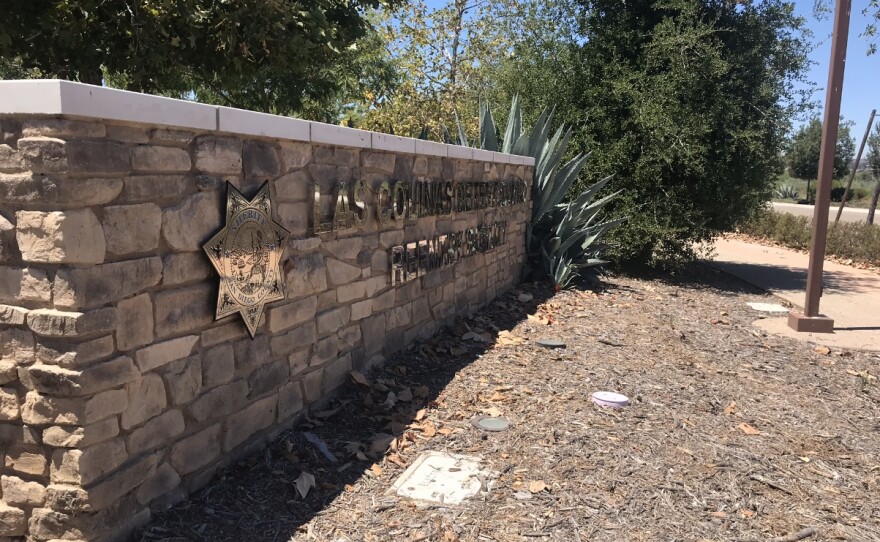A San Diego federal judge granted a request today to unseal videos and other evidence related to the death of an inmate at the Las Colinas jail in Santee.
U.S. District Judge Larry A. Burns ruled in favor of the family of 24- year-old Elisa Serna, who moved to unseal exhibits that included jail videos showing the final days of her life. Some of those videos were played in open court during a criminal trial held earlier this year for a doctor and nurse charged with involuntary manslaughter in connection with Serna's death.
Serna died shortly after she collapsed in her cell in the jail's medical observation unit on Nov. 11, 2019, five days after she was booked into the jail.
She was suffering from symptoms of drug and alcohol withdrawal, including frequent vomiting and seizures. In the criminal trial, prosecutors argued withdrawal symptoms can be fatal and though her condition could have been treated, she was often ignored or accused of faking her symptoms.
After she collapsed, Serna was left alone on the floor of her cell. Emergency personnel were summoned an hour later and discovered she was dead.
Burns' order stems from the Serna family's wrongful death lawsuit against San Diego County, then-Sheriff Bill Gore, and various jail staff members.
Attorneys representing San Diego County and the other defendants argued to keep the items under seal for various reasons, including that releasing the videos could compromise jail security.
"Anyone viewing this footage could determine what parts of this area of the jail are under surveillance and find dead spots to avoid coverage of the cameras," the defendants' lawyers wrote in one of their briefs urging Burns to keep the materials private.
During a Friday afternoon hearing, Burns said he was not persuaded by the argument, telling county attorneys, "The county's on notice now that there's dead spots. If they think it's a security concern, get an electrician in there and put another camera up."
Attorneys for the defense also argued the videos do not accurately depict what jail staff personally observed on the date of Serna's death. "Thus, that particular footage does not further any public interest in understanding the treatment/care provided to the decedent in jail," their brief states.
Eugene Iredale, one of the attorneys representing the Serna family, told Burns the public interest in what occurred outweighed the county's concerns.
"We believe that the public should see what happens in a public institution and how the public money is spent and how public officials act," Iredale said.
Burns said he did consider how public dissemination of the footage could potentially taint a jury pool for the eventual civil trial, but said he was confident that the attorneys would be able to exclude affected jury members from making the panel.
Iredale said after the hearing that Burns "ruled exactly in accordance with the law" and called the requests to keep the material sealed "indicative of another attempt by the county to bury the truth along with the body."
Much of the material was originally kept under seal because the criminal case against nurse Danalee Pascua and Dr. Friederike Von Lintig was still in progress. Their trial concluded in February, with Pascua acquitted and Von Lintig's case dismissed after jurors voted 9-3 in favor of acquitting her.







